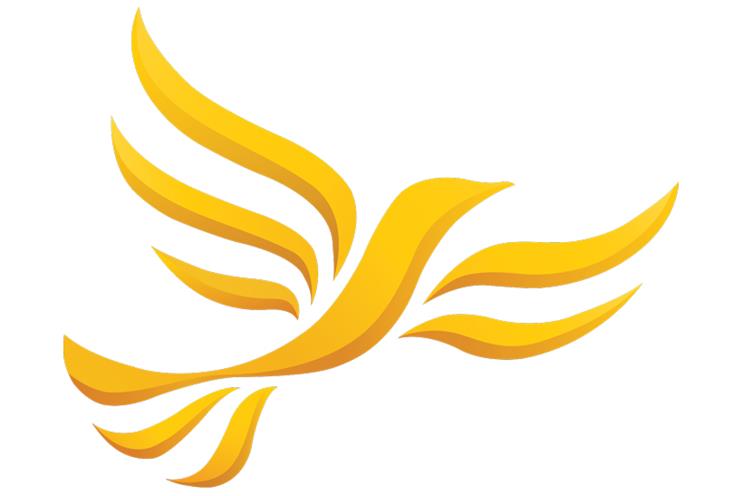Picture the scene: my wife has an important meeting, so I agree to leave the office early to pick up the kids from school. Unfortunately, the day runs away with me and, to my great shame, the school run slips my mind, resulting in my children waiting at the gates after hours, accompanied by their increasingly concerned teacher.
There’s a number of ways I could respond to this – entirely hypothetical – mishap. I could apologise profusely, proffer expensive gifts and go out of my way to demonstrate how I’ve learned my lesson and won’t make the same mistake again. Or I could say, don’t blame me, that was Warren Johnson, I’m now Robert Johnson.
The main problem with this approach is it would likely result in Robert, or Warren, getting a divorce.
'Forget about that tuition fees fiasco the Liberal Democrats went through, we’re the Liberals now,' is an unsatisfactory response to an electorate that punished the Lib Dems so severely at the ballot box
Replace my name(s) with the Liberal Democrats, and my wife and kids with an electorate feeling let down, and you see the risk in the Liberal Democrats rebranding as the Liberals, as one of the party’s leadership contenders, Tim Farron, is .
"Forget about that tuition fees fiasco the Liberal Democrats went through, we’re the Liberals now," is an unsatisfactory response to an electorate that punished the Lib Dems so severely at the ballot box.
Others might argue that when the British public has provided such a clear signal to a party that it’s brand is tarnished, it’s inevitable it should choose to rebrand.
There’s some validity in that – it’s likely a similar line of argument is behind Stephen Kinnock’s view that there’s a case for rebranding the party, which has struggled for some time and received an even worse drubbing at the hands of the SNP than anticipated.
Make it clear
There are, however, crucial steps that need to be taken to ensure rebranding results in a salvaged reputation, rather than recriminations and divorce.
Crucially, it needs to be clear that the brand proposition, or the forgetful husband, has fundamentally changed, with the rebrand merely a reflection of – not a replacement for – this change in direction and newfound commitment to keeping promises.
Perhaps the main problem with rebranding as the Liberals is the word means different things to different people
Perhaps the main problem with rebranding as the Liberals is the word means different things to different people. For fans of , it might mean left-leaning and progressive. fans might take a different view, with the Liberal party in Denmark on the right of the political spectrum.
With this in mind, ‘Liberal’ is arguably appropriate branding for a party that, fairly or not, is accused of possessing few fixed principles. That’s not, however, the sort of messaging likely to prompt supporters to rally round a cause.
Say what you mean
There’s something else that the Liberal Democrats could learn from successful TV shows – the need to communicate a key message quickly and clearly
TV programmes such as Rich Kids Go Shopping, My Daughter the Teenage Nudist or The 15-stone Babies show the world of television has recognised that branding must engage audiences whose attention spans are shorter than ever. While the Liberals might mean right wing or left wing, Rich Kids go Shopping instantly conveys what the show offers viewers – and will never mean Poor Adults Don’t Shop.
Closer to home for the Lib Dems, the UK Independence Party is a good example of branding that communicates the party’s central cause very quickly.
And, say what you like about UKIP leader Nigel Farage, because certainly will, but his direct, plain-speaking messaging has served his party well – the one seat won by UKIP more a quirk of the voting system than a fair representation of a party that won more votes than the Liberal Democrats and the SNP combined.
Know what you stand for
So, should the Liberal Democrats rebrand? Possibly, but they need to understand what they stand for first, and find a way to convey this succinctly.
As it stands, the Lib Dems’ seeming identity crisis is the enemy of succinct branding – few will be inspired to vote for the We’ll Moderate the Worst Excesses of Whichever Party Happens to Win the Most Seats Party
As it stands, the party’s seeming identity crisis is the enemy of succinct branding – few will be inspired to vote for the We’ll Moderate the Worst Excesses of Whichever Party Happens to Win the Most Seats Party. Likewise, its track record means the No Fees Party is out, as is Kept Promises.
Possible alternatives could include the Centre, Moderate, or Progressive party. Whatever they decide, branding should always be an inside-out job – a reflection of a detailed set of values and policies that can make a positive difference to the country.
Otherwise, the party's dwindling number of MPs will be left looking forlorn and lost, like the children of a forgetful dad, shivering outside the school gates.
Recommended
Ho


